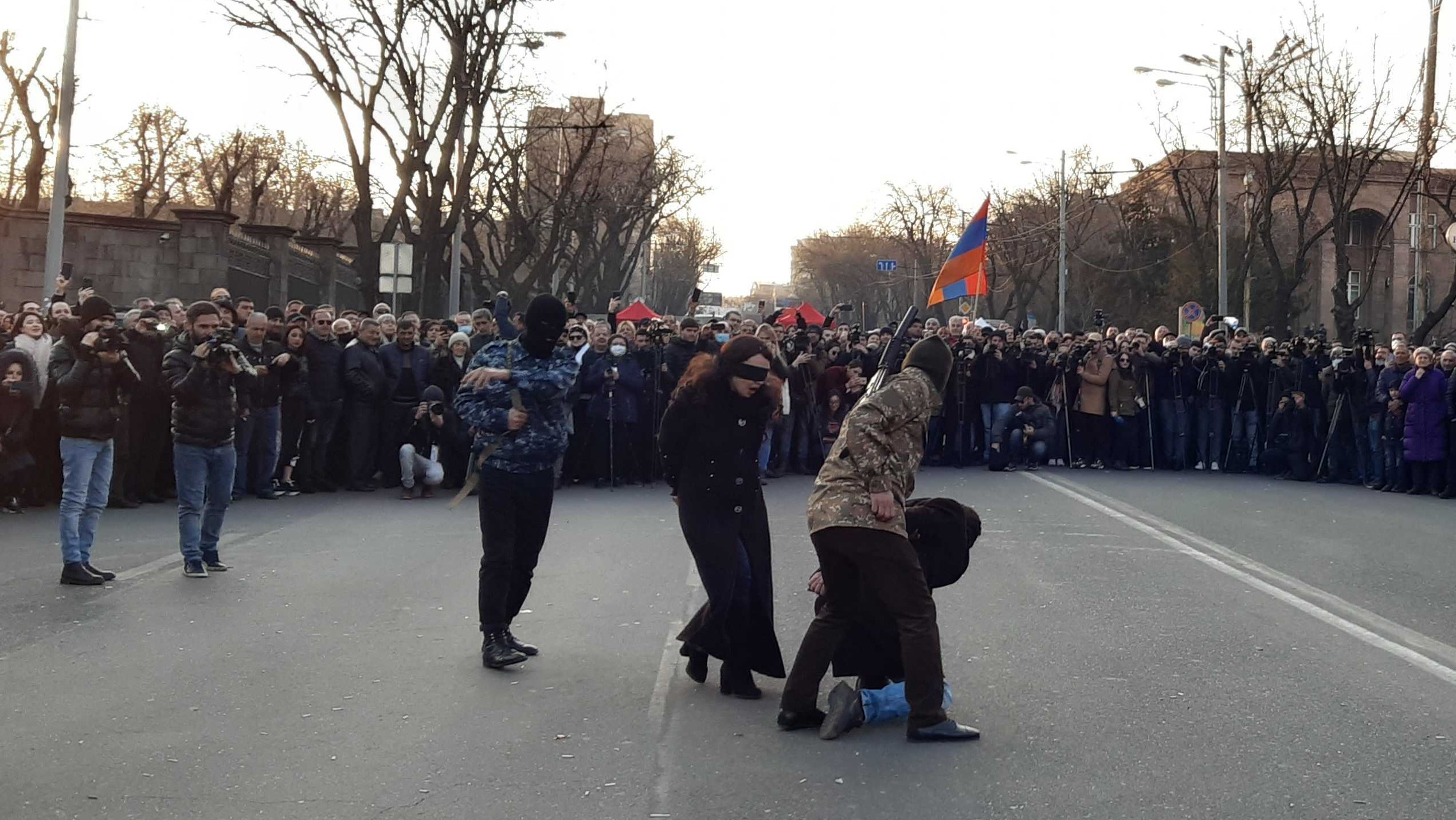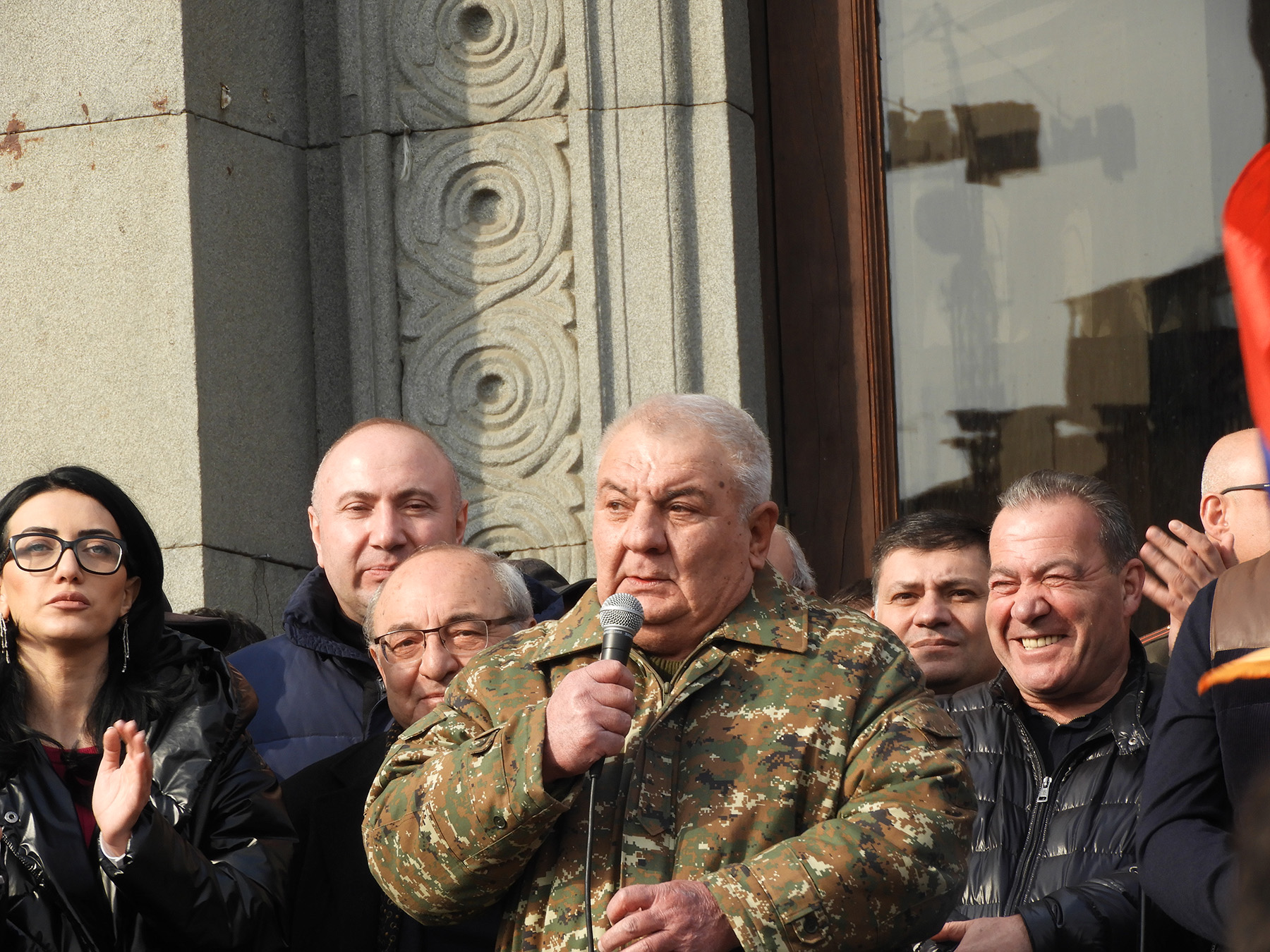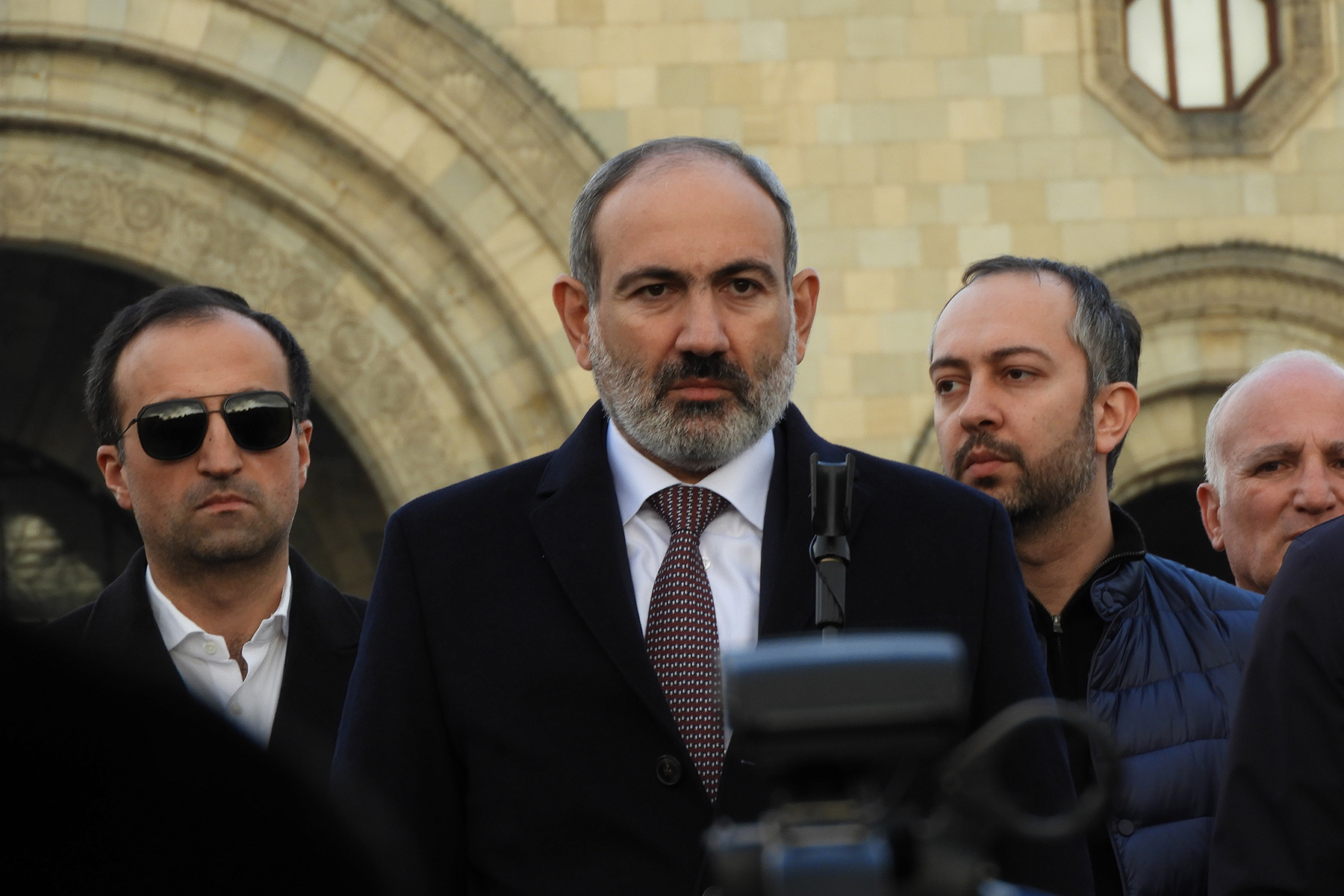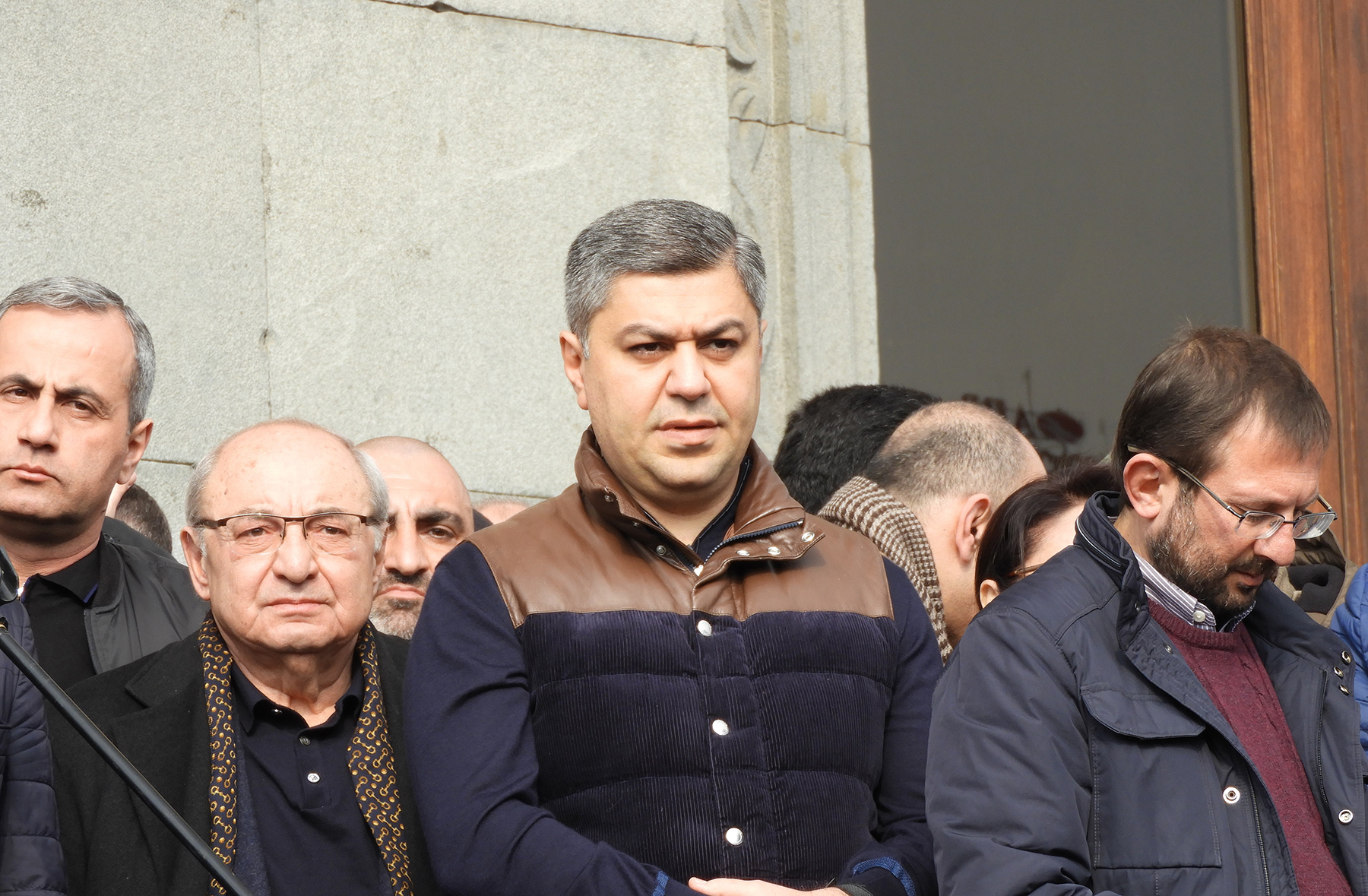
Armenia remains in a tense political stand-off after the country’s top military brass called for Nikol Pashinyan’s resignation, and the capital city saw duelling pro- and anti-government rallies.
[For coverage of events as they happened on 25 February read: Live updates: Pashinyan condemns ‘military coup’]
Shortly after the statement was published Nikol Pashinyan described it as an ‘attempted military coup’ and fired the head of the General Staff of the Army and one of the signatories to the statement, Onnik Gasparyan. Armenia’s President Armen Sarkissian has refused to sign Pashinyan’s order to remove Gasparyan, and as such the order remains unenforced at present.
Pashinyan also called on his supporters to gather in Yerevan’s central Republic Square. Meanwhile, opposition leaders called on their supporters to gather at Freedom Square, roughly 1 kilometre away.
Though the day saw duelling rallies, it was largely peaceful with the massed supporters of the two sides never in direct confrontation, and with only scattered physical clashes.
While Pashinyan wrapped up his rally in the evening around 19:00, opposition leaders called on their supporters to occupy Baghramyan Avenue, one of the city’s major thoroughfares on which the country’s parliament is located. Opposition supporters then proceeded to set up tents and rubbish bin barricades.

‘Maybe 10% of them exploded’
The political crisis was initially triggered by Pashinyan’s firing of the Deputy Chief of the Army’s General Staff Tigran Khachatryan — in response to which the military statement for his resignation was published.
Khachatryan had recently criticised the Prime Minister’s comments that when Armenian forces utilised Russian-produced Iskander missiles during the Second Nagorno-Karabakh War they ‘didn’t explode — or maybe 10% of them exploded’.
Pashinyan’s claim was denied by Russian officials. A Russian Ministry of Defence spokesperson said that they were ‘perplexed and surprised’ by Pashinyan’s comments as Armenia did not use Iskander missiles during the war and that the Armenian Prime Minister was probably ‘misled’.

On 25 February, seemingly in response to Pashinyan’s statement, the Russian Defence Ministry published videos of what appeared to be successful Iskander missile strikes in Syria.
The Russian Federation is the world’s second-largest weapons exporter after the United States.
Escalation in rhetoric
While delivering a speech at Republic Square on 25 February, Pashinyan declared that one of his greatest mistakes was leading a ‘velvet’ revolution, stating that he had been too lenient with the country’s previous authorities. It’s time for an ‘end to the velvet’, the Prime Minister said. He also threatened opposition leaders with imprisonment if they ‘crossed the line’.

Pashinyan also made conciliatory statements. ‘Even those who I have fired, they are my brothers, our brothers, the soldiers of our homeland’, he said. He also called on the opposition to enter into negotiations to end the crisis.
Such overtures were rejected. Opposition leader and the former head of Armenia’s National Security Service Artur Vanetsyan stated that he and other leading opposition figures are only ready to discuss ‘the resignation of Nikol Pashinyan’ — these sentiments were also echoed by other opposition leaders.

Strange happenings
On 25 February, as both pro- and anti-government protesters were gathered, a fighter jet made repeated low passes over the centre of the city. Fact Investigation Platform, an independent fact-checking organisation, identified the plane’s silhouette to be that of a MiG-29 fighter jet.
The Armenian military does not possess any MiG-29s, though they are present on Armenian territory at the Russian military base located in the city of Gyumri.
The Armenian Ministry of Defence, has since issued a statement in which they claimed that a training exercise was happening at the time that Yerevan residents saw the plane.
Yerevan residents also complained of poor internet connectivity on 25 February, with London-based internet freedom watchdog Netblocks recording an usual disruption of internet services at that very same time.
The disruption remains unexplained.








